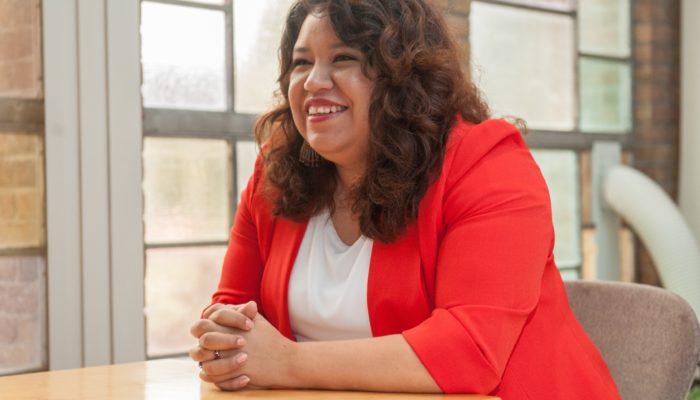
“Just because you’re not a permanent resident, doesn’t mean you can’t make a difference.”
As president of Genesee County Hispanic Latino Collaborative – La Placita, San Juana Olivares paved the way to clean water for all. She used her passion for water and human rights to advocate for Hispanic-Latino populations in Michigan, especially those affected by the Flint water crisis. Much of her interest in water issues and the environment stems from her original volunteer work with La Placitia. Today, she continues to dedicate her time to ensuring resources get to families that need them most.
Inspiration for Work
Originally from Mexico, San Juana moved to the United States when she was nine. Therefore, she has experienced firsthand what it feels like to learn English in a new and unfamiliar place. Growing up under these circumstances has inspired her to create a world where language and cultural differences are not barriers to accessing resources.
Work Experience
In Flint, San Juana has played a key role in getting the Hispanic-Latino community access to clean water. With lead leaching into water pipes and drinking water, residents of Flint do not have a safe water source. Local pantries help give items out to affected residents but often require a valid license, proof of income, or birth certificate. San Juana identified a need here to accommodate undocumented community members who are not able to take advantage of these resources. In collaboration with La Placita, she helped create a new pantry in Flint that serves undocumented residents. This pantry does not require paperwork and is open in the evening to give working residents an opportunity to pick up items. In addition to the panty, San Juana also helped the community learn how to test their water for lead. Because water testing assistance is geared towards those who speak English, San Juana worked with La Placita to educate Hispanic-Latino families about filter installation and water testing in their homes.
Advice to Other Women in Conservation
As a woman of color in the environmental arena, San Juana encourages women in similar positions to not give up in their respective fields. Even though there will be bumps on the road, she advises women to be passionate about their purpose and keep moving forward. However, she also cautions that before we can help others, we must first take care of ourselves. By applying these principles in her own life, she has found that “just because you’re not a permanent resident, doesn’t mean you can’t make a difference.”
